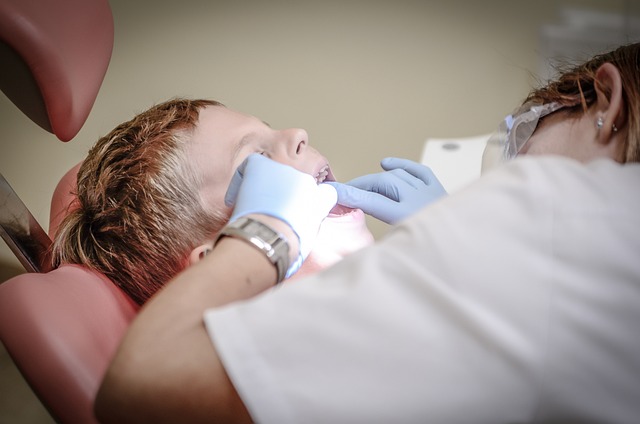Essential Dental health is crucial for overall well-being. It involves regular care, including brushing, flossing, and professional check-ups.
Maintaining good essential dental health is vital for a healthy lifestyle. Regular brushing and flossing help prevent cavities and gum disease. Visiting a dentist for routine check-ups ensures early detection of potential issues. A balanced diet, rich in vitamins and minerals, supports solid teeth and gums.
Poor oral hygiene can lead to serious health problems, including heart disease and diabetes. Investing time in dental care can save you from pain and costly treatments in the future. Start today and prioritize your dental health to enjoy a bright and confident smile.
Importance Of Dental Health

Dental health is vital for overall well-being, especially for children. Good oral hygiene practices like brushing and flossing help prevent cavities, gum disease, and bad breath. Healthy teeth are essential for proper chewing, which aids digestion and ensures children receive the necessary nutrients from their food. Maintaining dental health can also boost self-confidence by preventing tooth decay and ensuring a bright smile. Poor dental care, on the other hand, can lead to pain, infections, and more severe health issues, such as heart disease. Regular dental check-ups and cleanings are crucial for catching and treating problems early.
Daily Oral Hygiene
Good dental health starts with daily oral hygiene. Simple habits can keep your teeth healthy. Brushing and using the right toothpaste are key.
Proper Brushing Techniques for Essential Dental Health
Brushing your teeth properly is very important. Follow these steps:
- Use a soft-bristled toothbrush.
- Hold the brush at a 45-degree angle.
- Gently move the brush in small circles.
- Brush for at least two minutes.
- Don’t forget to brush your tongue.
Proper brushing removes plaque and prevents cavities. It also keeps your gums healthy. Brushing twice a day is a must.
Choosing The Right Toothpaste for Essential Dental Health
Picking the right toothpaste is crucial. Here are some tips:
- Look for fluoride toothpaste.
- Pick a toothpaste with the ADA seal.
- Choose a flavour you like.
- Consider special needs like whitening or sensitivity.
Fluoride helps strengthen your teeth. The ADA seal means it’s tested and safe. A toothpaste that tastes good makes brushing fun. Special toothpaste can help with other issues.

Flossing And Interdental Cleaning
Maintaining good Essential dental health goes beyond just brushing. Flossing and interdental cleaning are crucial for removing plaque and food particles between teeth. This helps prevent gum disease and cavities. Let’s explore the correct flossing method and alternatives to traditional floss.
Correct Flossing Method
Flossing correctly is critical to adequate dental care. Follow these simple steps:
- Take about 18 inches of floss. Wrap it around your middle fingers.
- Hold the floss tightly between your thumbs and forefingers.
- Gently slide the floss between your teeth. Use a sawing motion.
- Curve the floss into a C shape around each tooth.
- Move the floss up and down against the tooth surface and under the gumline.
- Use a clean section of floss for each tooth.
Alternatives To Traditional Floss
Traditional floss isn’t the only option for cleaning between your teeth. Here are some alternatives:
- Floss Picks: Easy to use and portable.
- Interdental Brushes: Small brushes that fit between teeth.
- Water Flossers: Use a stream of water to clean between teeth.
- Dental Tape: Wider and flatter than standard floss.
Each of these tools offers unique benefits. Choose the one that fits your needs best. Consistent use of these tools can significantly improve your Essential dental health.
| Tool | Benefit |
|---|---|
| Floss Picks | Convenient and easy to use. |
| Interdental Brushes | Effective for more significant gaps between teeth. |
| Water Flossers | Gentle on gums, good for braces. |
| Dental Tape | Comfortable for tight spaces. |
Essential dental health
Essential dental health involves more than just brushing your teeth; it’s a crucial part of overall well-being. Daily habits like brushing twice daily with fluoride toothpaste, flossing, and using mouthwash help prevent cavities, gum disease, and bad breath. Regular dental check-ups are vital for catching issues early and maintaining a healthy mouth. Good dental hygiene ensures proper chewing, vital for digestion and nutrient absorption. It also helps prevent tooth decay, which can lead to pain, infections, and even tooth loss if left untreated. Healthy teeth and gums contribute to a confident smile and overall self-esteem. Establishing these habits early, especially in children, sets the stage for a lifetime of good oral health, reducing the risk of serious health problems linked to poor dental care, such as heart disease and diabetes.
Diet And Dental Health
Your diet plays a significant role in your essential dental health. What you eat can either strengthen your teeth or harm them. A balanced diet helps maintain strong teeth and gums. Good choices keep your smile healthy and bright.
Foods That Strengthen Teeth
Some foods are very good for your teeth. These foods can make your teeth strong and healthy.
| Food | Benefits |
|---|---|
| Cheese | Rich in calcium, it strengthens tooth enamel |
| Leafy Greens | High in vitamins and minerals, it supports gum health |
| Yoghurt | Contains probiotics that benefit oral health |
| Carrots | Crunchy texture helps clean teeth |
| Apples | Stimulates saliva reduces tooth decay |
Foods To Avoid
Some foods can harm your teeth. Avoid these foods to keep your teeth healthy.
- Sugary Candies: Leads to cavities and tooth decay.
- Sodas: High in sugar and acid, erodes enamel.
- Sticky Foods: Clings to teeth and promotes bacteria growth.
- Ice: Can crack or chip teeth when chewed.
- Alcohol: Dries out the mouth and reduces saliva production.
Eating the right foods can help keep your teeth healthy. Avoid harmful foods to maintain a bright smile.

Regular Dental Check-ups
Maintaining good dental health requires regular dental check-ups. These visits help prevent serious dental issues. They also ensure a healthy and bright smile.
Frequency Of Visits
How often should you visit the dentist? Most experts recommend it twice a year. This frequency helps in the early detection of problems. Some may need more frequent visits. Factors like age, oral health, and medical conditions influence this.
| Age Group | Recommended Frequency |
|---|---|
| Children | Every 6 months |
| Adults | Every 6 months |
| Seniors | Every 4-6 months |
What To Expect During A Visit
Dental check-ups are simple and pain-free. They usually include:
- Examination: The dentist checks your teeth and gums.
- Cleaning: Professional cleaning removes plaque and tartar.
- X-rays: These may be taken to see hidden issues.
The dentist looks for cavities, gum disease, and other issues during the examination. Cleaning helps remove harmful bacteria. X-rays reveal problems not visible to the naked eye.
Regular dental check-ups ensure early detection of problems. This leads to less invasive treatments. So, book your dental appointment today!
Teeth Whitening Options
Everyone desires a bright smile. Teeth whitening options can help achieve this. There are different methods available to suit your needs.
At-home Whitening Kits
At-home whitening kits are popular. They offer convenience and affordability. These kits usually come with whitening gels and trays.
- Whitening Strips: Easy to use and effective.
- Whitening Toothpaste: Helps maintain whiteness daily.
- Whitening Pens: Portable and easy to apply.
| Method | Pros | Cons |
|---|---|---|
| Whitening Strips | Easy to use, affordable | May cause sensitivity |
| Whitening Toothpaste | Daily use maintains whiteness | Slow results |
| Whitening Pens | Portable, quick application | Temporary results |
Professional Whitening Treatments
Professional whitening treatments offer faster results. Dentists do these treatments. They use more vital bleaching agents.
- In-Office Whitening: Quick and effective, done in one visit.
- Laser Whitening: Uses light to speed up whitening.
- Custom-Fit Trays: Provided by dentists for home use.
| Method | Pros | Cons |
|---|---|---|
| In-Office Whitening | Fast results, professional care | Expensive |
| Laser Whitening | Effective, quick | High costs may cause sensitivity |
| Custom-Fit Trays | Tailored fit, professional supervision | Costly, takes longer |
Handling Dental Emergencies

Dental emergencies can occur without warning. Knowing how to handle them is crucial. This guide will help you manage common dental emergencies effectively.
Common Dental Emergencies
Dental emergencies can vary. Here are some common ones:
- Toothache: Severe pain in a tooth.
- Chipped or Broken Teeth: Part of the tooth is broken.
- Knocked-Out Tooth: A tooth is entirely out of its socket.
- Lost Filling: A dental filling falls out.
- Abscess: Infection around the tooth root.
Immediate Steps To Take
Take these steps immediately during a dental emergency:
Toothache
- Rinse your mouth with warm water.
- Use dental floss to remove food particles.
- Apply a cold compress to reduce swelling.
Chipped or Broken Teeth
- Save any broken pieces.
- Rinse your mouth with warm water.
- Apply a cold compress to the outside of the mouth.
Knocked-Out Tooth
- Hold the tooth by the crown, not the root.
- Rinse it with water if dirty.
- Try to place the tooth back in its socket.
- If not possible, put it in a container with milk.
- See a dentist immediately.
Lost Filling
- Use over-the-counter dental cement as a temporary measure.
- See your dentist as soon as possible.
Abscess
- Rinse your mouth with mild salt water several times.
- Seek immediate dental care.
Preventive Measures

Maintaining good, essential dental health for everyone. Preventive measures help avoid dental problems before they start. These steps can save you pain, time, and money. Below are some key preventive measures you should consider.
Sealants And Fluoride Treatments
Sealants are thin coatings painted on the chewing surfaces of the back teeth. They quickly bond into the depressions and grooves, forming a protective shield over the enamel. Sealants can prevent cavities for many years.
Fluoride treatments make teeth more robust and more resistant to decay. Fluoride can be found in many dental products, including toothpaste and mouth rinses. Dentists can also apply fluoride directly to your teeth.
| Treatment | Benefits |
|---|---|
| Sealants | Protects against cavities, especially in children |
| Fluoride Treatments | Strengthens enamel, prevents tooth decay |
Using Mouthguards
Mouthguards are Essential dental health for anyone involved in sports. They protect your teeth from injury. Mouthguards can prevent broken teeth and injuries to your lips, tongue, face, or jaw.
There are different types of mouthguards:
- Stock mouthguards: Pre-formed and ready to wear.
- Boil and bite mouthguards: Softened in boiling water and then shaped to your teeth.
- Custom-fitted mouthguards: Made by your dentist for a perfect fit.
Custom-fitted mouthguards offer the best protection and comfort. They might cost more, but they are worth the investment.
8 Steps for Healthy Tips
- Brush Twice Daily: Use fluoride toothpaste to brush your teeth at least twice daily, ideally after meals, to remove plaque and prevent cavities.
- Floss Daily: Flossing removes food particles and plaque from between teeth that a toothbrush can’t reach, helping prevent gum disease.
- Use Mouthwash: An antibacterial mouthwash can reduce plaque, prevent gum disease, and freshen your breath.
- Limit Sugary Foods and Drinks: Sugary and acidic foods can erode tooth enamel and lead to cavities, so limit their intake.
- Drink Plenty of Water: Water helps wash away food particles and bacteria and promotes saliva production, naturally protecting teeth.
- Eat a Balanced Diet: Include plenty of fruits, vegetables, and calcium-rich foods to support strong teeth and gums.
- Visit the Dentist Regularly: Regular check-ups and cleanings are crucial for catching problems early and maintaining dental health.
- Avoid Tobacco: Smoking and chewing tobacco can lead to gum disease, tooth decay, and oral cancer. Avoiding these habits is crucial for healthy teeth.
How to improve your bed teeth
Improving bad teeth requires professional dental care and good oral hygiene habits. Start by visiting a dentist for a comprehensive examination to identify underlying issues like cavities, gum disease, or misalignment. The dentist may recommend treatments such as fillings, crowns, or braces to address these problems of Essential dental health.
At home, adopt a rigorous oral care routine. Brush your teeth at least twice daily with fluoride toothpaste, and floss daily to remove plaque and food particles. Consider using an antibacterial mouthwash to reduce bacteria and freshen your breath. Limit the intake of sugary and acidic foods, which can worsen tooth decay, and drink plenty of water to keep your mouth hydrated. If your teeth are stained, whitening treatments can help improve their appearance at home or professionally. Consistency in these practices is critical to transforming bad teeth into a healthier, more confident smile.
Frequently Asked Questions
What Is The Meaning Of Dental Health?
Dental health refers to your teeth, gums, and mouth condition. It involves preventing oral diseases and maintaining oral hygiene.
How Do You Improve Dental Health?
Brush twice daily with fluoride toothpaste. Floss daily to remove plaque. Limit sugary snacks and drinks. Visit your dentist regularly for check-ups. Maintain a balanced diet rich in vitamins and minerals.
What Are The Signs Of Poor Oral Hygiene?
Signs of poor oral hygiene include bad breath, bleeding gums, toothache, cavities, and tartar buildup. Regular dental check-ups are essential.
What Are 10 Things To Keep Your Teeth Healthy?
1. Brush twice daily with fluoride toothpaste. 2. Floss daily to remove plaque. 3. Limit sugary foods and drinks. 4. Eat a balanced diet rich in vitamins. 5. Visit your dentist regularly. 6. Avoid tobacco products. 7. Use mouthwash to kill bacteria.
8. Drink plenty of water. 9. Chew sugar-free gum. 10. Wear a mouthguard during sports.
Conclusion
Maintaining dental health is essential for overall well-being. Regular check-ups and good hygiene practices prevent issues. Remember to brush twice daily and floss. A healthy diet also supports strong teeth. Prioritize dental care to enjoy a bright, confident smile. Your teeth will thank you!

I am a health writer and blogger based in the USA. I have over 5 years of experience writing about the latest trends and improving health life. Parenting is a blend of tradition and innovation, especially when it comes to nurturing a healthy child. Embracing the balance of physical, emotional, and mental well-being is crucial. In the age of information, parents have access to an abundance of resources.

1 thought on “Essential Dental Health -Brighter Smile”